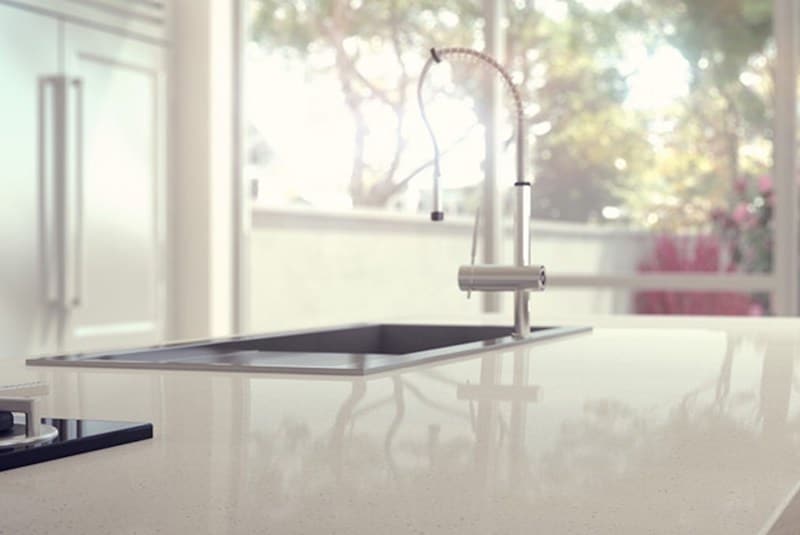Quartz surfaces are incredibly durable. Routine maintenance and cleaning are quite easy, and Méga Comptoirs quartz kitchen countertops may add beauty and an impression of stability to a home for generations with simple measures to avoid stains, fractures, or dents.
Standard Care And Maintenance:
With a bit of detergent, water, and a soft rag or napkin, quartz may be cleaned quickly. After cleaning, thoroughly rinse the surface. Quartz should not be cleaned using abrasive cleaners, rough scouring pads, or cleaners that contain chlorine. Designed stone surfaces need not be polished to stay smooth and bright. However, they should be softly cleaned to preserve their unique sheen.
Specific quartz colors and qualities, such as matte, sharpened, etc., are more vulnerable to grease or stains and may call for special cleaning precautions.
For bigger commercial settings, floor equipment such as a walk-behind scraper or slow-speed processor can be employed. Ensure to wash the floor properly to eliminate any hazy residue that can interfere with the floor’s sheen and attractiveness.
Use plastic or wood utensils instead of metal because metal can damage quartz. You must have a chopping board to avoid scratches when cutting vegetables, slicing bread, or prepping other items with sharp implements.
Utilize a stone care item to eliminate oils from your quartz surfaces. Oil or other culinary stains are not to be removed using harsh cleaners. Before using a cleanser, use a plastic knife to scrub away any solidified grease gently.
Scrapes and smudges:
Although quartz worktops are resistant to burns, stains, dents, scratches, and scuffs, they are not indestructible. Homeowners should avoid using lasting inks, markers, or dyes on quartz counters because these materials may be difficult to remove. If a marker pen or dye has left a mark on a countertop, rinse the area as quickly as you can with water. Use a cleaning solution formulated for stone care if the mark is still noticeable. After using the cleaner, wash the area with water once more.
How do you avoid chemical damage?
Minimize exposure of Quartz Countertops to solvents and chemicals, especially paint strippers and upholstery cleaners that include methylene chloride or trichloroethane. Avoid coming into direct contact with a nail polish remover, bleach, or cleaners that include these substances. Quartz surfaces will not be harmed by incidental exposure to alkaline substances, although using highly alkaline cleaners is not advised.
Beware of excessive heat!
Direct excessive heat can harm quartz counters. When cooking, protect the countertop surface from direct contact with hot kitchenware or coffee pots by using trivets or hot plates.
Guarding quartz surface!
The impermeable surface of quartz products eliminates the need for sealants, making it a long-lasting, hygienic choice for kitchens or restrooms. Follow the manufacturer’s recommendations for quartz countertop upkeep and care to make sure you receive the most use out of your counter and that your guarantee covers any unforeseen issues.






